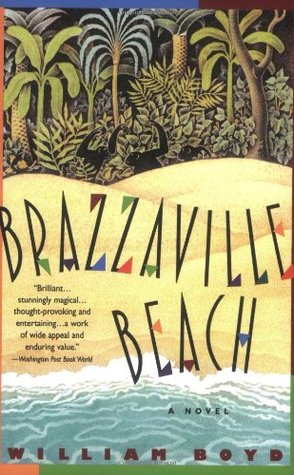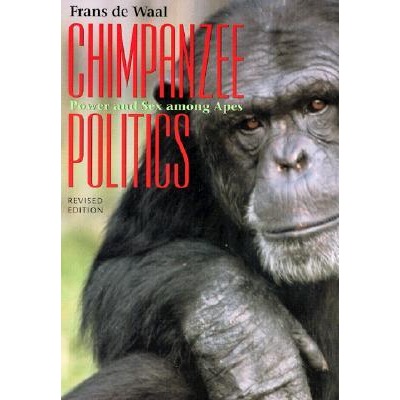A very unusual locale and set-up for a krimi. Bravo!
The action centers on a research station in the forests along the Congo River where a multinational group of scientists observe chimpanzees sometime in the 1960s. The narrator is a recently-minted PhD who muses on what led her to this place when she is not watching the monkeys. (I do so detest backstories because they are distracting.)

The book offers intriguing soupçons about the primatological research into the social customs, practices, and habits of a clan of chimpanzees, along with a study of their diet, and movements, including bowels.
In the distance, on the far side of a mountain range there is a four-way civil (tribal) war going on, and that spectre cannot be ignored, since it might influence the funding agencies to withdraw support. Of course, there are twists and turns among the scientist, though our protagonist is so junior, she seldom sees the professional rivalries firsthand. That is, she is out in the field observing, while back in the base camp the more senior members of the party wrangle over precedence. What she sees there in the field is remarkable and in time upsets the established order.
Spoiler alert.
The book recounts three intersecting conflicts: there is war among the chimpanzees, there is conflict among the scientists over the data and its interpretation, and the tribal war mentioned above. In time, the three come together. It is all very ambitious. The first two provided more than enough material, and this reader found the intrusion of the third inevitable and unnecessary.
The most interesting aspect is the primatology. The manners and morēs of the chimpanzees in the wild, the relations among them, including the conflict that is a war in all but name. But also of interest is the relationships of the primatology observers with the chimpanzees. The scientists personify the chimpanzees with nicknames, though technically they have specimen numbers, these latter are only used in the final write-ups. Nor is there any doubt that the chimpanzees recognise and distinguish the observers from themselves and that they know one observer from another, and there is one harrowing moment when that recognition is crucial.
Years ago as a prospective text for the Power course, I read Frans de Waal’s ‘Chimpanzee Politics’ (1985), a study of chimpanzees in the Arnham Zoo in the Netherlands, a book that is written with panache and insight, along with a few gratuitous reference to Machiavelli that I logged in my collection of inanities about him. While de Waal’s book has much technical detail about quasi-experimental tests done in captivity, it is easy enough for a general reader, and leaves one in no doubt of the intelligence and capacity to learn of chimpanzees.

Our heroine survives it all but some others (including some of the chimpanzees) do not. She finds that among the tribal warriors are some decent folks, that the mercenaries attracted to the conflict are a varied lot, that some of the scientists on the project are unscrupulous and mercenary themselves (really?), that the chimpanzees are capable of moral acts, that her husband’s suicide which more or less drove her to Africa remains a mystery, and that…. the most important lesson, life goes on even in Brazzaville Beach.
 William Boyd
William Boyd
The writing is assured; the touch is light; the themes are serious as they slowly emerge. The context is richly detailed. Altogether a good book. William Boyd has others and I might read another one day but I will not make it a priority, because I thought this one had too many themes and circumstances competing for my thin attention. Once again, I seem to be in a minority because the back cover is plastered with testimonials from the highest sources like the ’New York Times.’
The title caught my eye because Brazzaville in the Republic of the Congo was where Charles De Gaulle made his second radio broadcast, this one to the French colonies. There was a large transmitter in Brazzaville, built in the 1930s to reach the African colonies and even some air and naval traffic. De Gaulle traveled there in 1940 to win supporters, and met with some success.
Skip to content
